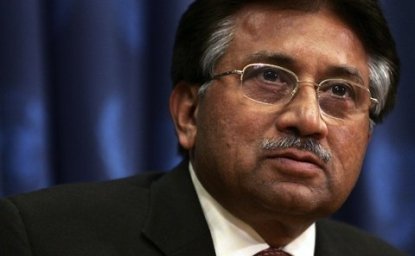On Sunday, September 8, 2013, Asif Ali Zardari, the leader of the Pakistan Peoples Party (PPP) stepped down as the president of Pakistan. Many will write about this historic day as it represents the first time a democratically elected president completed a five-year term, followed by a peaceful transition to another democratically elected government. Most of Pakistan's leaders have been removed from office in coups d'état or have been forced to resign. Zardari is the only one to leave office with a formal lunch hosted by his political rivals.
Although Zardari's tenure in office was characterized by judicial activism and media opposition that often bordered on hatred, it will be remembered for its tolerance of that criticism. Since Pakistan's independence 66 years ago, its politics have been intensely polarized. Opponents of the subsequent governments have been routinely jailed and even killed after being labeled "enemies of the state." Zardari, however, chose to take the criticism, preferring the noise of a fledgling democracy to the enforced silence of superficial stability.
Polarization in Pakistan has not ended but it has diminished, at least among the major electable national leaders and parties. Much of what it took to achieve this historic moment is publicly known, but there are many stressful and difficult moments known to just a few. Perhaps one day the entirety of the struggle to deliver democracy and strengthen Pakistan's parliamentary roots will become public knowledge.
What most people do know is that since the February 2008 parliamentary election, and especially after the resignation of former president and military strongman Pervez Musharraf, there has been a powerful lobby in Pakistan hankering for the "good old days" when the reins of authority were held solely by the country's powerful generals, bureaucrats, and judges, who were assisted by powerful media barons and urban industrialists.
When Zardari took office, many politicians, bureaucrats, journalists, and citizens had very little idea of who he was. The picture painted by the country's intelligence agencies and the permanent establishment thrived in a nation obsessed by rumors and hungry for conspiracy theories.
Pakistan's urban elite have often been more comfortable with military rule and historically, elected leaders have been denigrated as incompetent and corrupt. It was not always easy to muddy and blacken the image of democratic leader Benazir Bhutto, especially on the international stage or with her party members, who stood by her like a rock. But it was very easy to scapegoat Zardari, the businessman-consort of the leading pro-democracy politician. He was accused of many things over the past two and a half decades without any charge ever being proved in any court. Anyone who has spent time in political life knows well that once your public image has been defined for you, it is often impossible to change that image.
As such, Zardari took little interest in restoring his personal image once he became president. He did not care that analysts and journalists tied to Pakistan's establishment described him as an "accidental president" and repeated unproved past allegations against him. Instead, his focus was to redress the imbalance in Pakistan's power structure.
Unelected presidents and military dictators had, in the past, accumulated power in that office at the expense of Pakistan's parliament and its provincial governments, the constituting units of the Pakistani federation. Zardari worked with the various parties in parliament to shape amendmentsthat restored the constitution to its original form. Because of his efforts, Pakistan can now be a functional parliamentary democracy and a proper federation, with real authority in the hands of its provinces.
Hardline opponents constantly claimed that Zardari and the PPP government, led by Prime Minister Yusuf Raza Gilani, would be gone in three months. This was then consistently repeated by the sages on Pakistani cable television and by print columnists. The entire effort was to destabilize the government itself, but it didn't work. Instead, it undermined the effectiveness of the government and deferred tough economic decisions.
The relentless pressure from many quarters, including the Supreme Court of Pakistan, eventually resulted in Gilani's removal over a contempt of court charge, something unheard of in any democracy. This judicial activism and the discretionary use of the court's Suo Moto powersparalyzed the executive branch of government. PPP cabinet ministers and administrative heads of government departments and agencies spent a lot more time answering frivolous petitions in court than they did in their offices governing the country. But with the May 2013 elections, which resulted in a new government led by the Pakistan Muslim League-Nawaz party, the question of the PPP government's performance is now history.
Zardari's legacy will instead be the strengthening of the democratic process. Out of office, he can now work on rebuilding the PPP so that the party can seek a mandate from the people during the next election to actually govern and deliver -- something it was not allowed to do last time.
While Pakistan's constitution bars the outgoing president from running for elective office for two years, Zardari is not prohibited from generating ideas and direction for his party. Hopefully, he will reform the party by bringing in new blood not associated with allegations of corruption and inefficiency. The PPP remains a mass political party that needs to be rejuvenated to make the case for a liberal, tolerant, pluralist and fair Pakistan. Zardari's son, Bilawal Bhutto, who is co-leader of the party, has already spoken of that need publicly on social media.
If the democratic environment, free of excessive polarization, which Zardari sought to create in the last five years, lasts for the next five, there will be room for Pakistani politicians to debate the country's fundamental issues: terrorism, international isolation and economic reform.
This article first appeared on ForeignPolicy.com.





